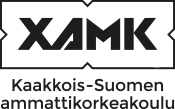(5 cr)
Code: AV00EF92-3002
General information
Enrollment
02.08.2021 - 31.08.2021
Timing
01.09.2021 - 18.12.2021
Number of ECTS credits allocated
5 op
Virtual portion
5 op
Mode of delivery
Distance learning
Unit
Open UAS and Continuing Education
Campus
Ecampus
Teaching languages
- English
Seats
20 - 65
Degree programmes
- Degree Programme in Energy Engineering
Teachers
- Merja Mäkelä
Teacher in charge
Merja Mäkelä
Objective
After this study unit, a student is able toexplain significant renewable energy sources and their trends in Finland and globallydescribe how renewable energy sources can be technically utilizedevaluate the profitability of different renewable energy sources.
Content
HydropowerWind powerSolar powerWood, peat and biomass energyWaste energyGeothermal powerOcean energyHydrogen technology and fuel cells.
Materials
1. Ready-made course materials and recordings in Learn.
Teaching methods
After completing this course, you will be able to
• list main renewable energy sources in Finland and globally
• identify the role of large-scale centralized and small-scale distributed energy production
• describe the basic principles of energy production processes using renewable sources
• analyze the energy efficiency of renewable sources
• evaluate the importance of production methods and subsidies in a national and international context.
• work up collaboratively in internet.
How are photosynthesis and carbon cycle related to renewable energy?
In which level hydro, solarpower is produced in large-scale centralized and small-scale distributed energy production?
Which machinery and devices are needed to produce heat and electricity from renewable sources and waste?
How would you compute the operating efficiency of a distant-monitored solar panel or solar collector, and how would you optimize the production?
In which way do the production subsidies affect the development of production and price in Finland and in Germany, for example?
Exam schedules
CHOICE OF FOUR ITEMS:
• Self-study 1 Solar power with an exam
• Self-study 2 Wind power with an exam
• Self-study 3 Bio energy with an exam
• Self-study 4 Hydro power with an exam
• Project 1 Animation
• Project 2 Solar thermal system
Student workload
8 h introduction lectures.
127 h self-study.
Evaluation scale
1-5
Assessment methods and criteria
The examinations are scheduled. All chosen four parts have a weight of 25 % in the final course grade.
